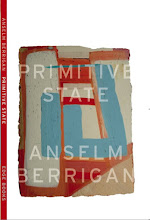What Was Turtlism
Suppose you tried to separate the feeling which music gives you from hearing music. Aspects of the composition of a book must partake of this attempt. Suppose you tried to separate the feeling shopping for music gives you from the experience of shopping for music. We may wish to call the elements of the aspects of the composition of a book its various “schizotypes.” The combining of the schizotypes imply an impractical material telepathy which is ever-present & decaying. The moment at which this decay communicates its unique advent-- its schizotypicality-- is the moment at which a reader escapes the artifact’s nascent particularity. Advents which plus then pulse.
The duration of the decay of the Poundian tradition -- if we were able to isolate that which is “truly Poundian” (i.e. it is merely a manner of articulation which Pound energetically intensified via his own conceptual artifice) -- relates directly to the problem of duration within the conflict of the poetic utterance. This conflict is the impression that that which is poetic is composed out of emotional &/or ideological conflict(s). Negation is previous to any event AND (re Spicer) it’s all content.
The transformation of conflict into musical event gives ground to the activities of impractical material telepathy. However such ground is staggeringly a-restringent, & desirously unspeculative. When Steve McCaffery writes in Close Listening: “The twentieth century presents two distinct scenarios for the voice in poetry. One is primal identity, culturally empowered to define the property of person. This is a phenomenological voice that serves in its self-evidence as the unquestionable guarantee of presence--when heard and understood through its communication of intelligible sounds this voice is named conscience. The other scenario--renegade and heterological--requires the voice’s primary drive to be persistently away from presence. This second is a thanatic voice triply destined to lines of flight and escape, to the expenditure of pulsional intensities, and to its own dispersal in sounds between body and language.” I want to locate a third term in which presence’s primal identity is found in "the book is said to be a duck." A flight back to presence in which any 1 duality, even that of life & death, does not suffice. In the duck, the third term is culturally empowered to define lines of flight as internally aperiodic passions, perceptions, & principles. This seems preferable to me.
Subscribe to:
Post Comments (Atom)





No comments:
Post a Comment